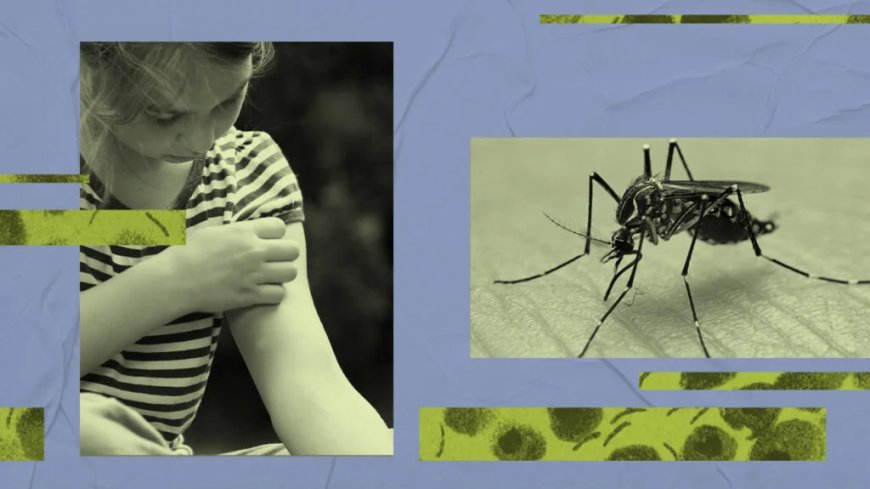obese children infected at higher risk of dengue fever.
Obese Children Infected with Dengue: Higher Risk of Hospitalization
Dengue fever, a mosquito-borne viral infection, poses a significant health risk in many tropical and subtropical regions worldwide. While the disease affects people of all ages, recent studies have shown that obese children who contract dengue are at a higher risk of hospitalization and severe disease outcomes compared to their non-obese counterparts. This article explores the correlation between obesity in children and the increased risk of severe dengue infections, examining the reasons behind this trend and the implications for healthcare providers and policymakers.
Understanding Dengue Fever
Dengue fever is caused by the dengue virus, which is transmitted to humans through the bites of infected Aedes aegypti mosquitoes. The disease manifests with flu-like symptoms, including high fever, severe headache, muscle and joint pain, nausea, and rash. In severe cases, dengue can progress to dengue hemorrhagic fever (DHF) or dengue shock syndrome (DSS), which can be life-threatening.
According to the World Health Organization (WHO), dengue fever affects millions of people each year, with children often being among the most vulnerable. Factors such as age, immune status, and underlying health conditions can influence the severity of the disease. Recent research has highlighted obesity as a critical factor that increases the risk of severe dengue infection, particularly in children.
Obesity: A Growing Epidemic
Obesity is a global health epidemic affecting millions of children worldwide. The condition is characterized by excessive body fat that poses a risk to health, leading to a range of complications such as cardiovascular disease, diabetes, and respiratory problems. The prevalence of obesity in children has increased dramatically over the past few decades, raising concerns about its impact on public health.
In the context of dengue fever, obesity presents unique challenges. The immune system of obese individuals is often compromised, leading to an altered immune response to infections. This can result in more severe symptoms and complications when obese children contract diseases such as dengue.
The Link Between Obesity and Severe Dengue in Children
Several studies have indicated that obese children infected with dengue are at a higher risk of hospitalization and severe disease outcomes. A study published in the Journal of Infectious Diseases found that obese children with dengue were more likely to develop severe symptoms such as DHF and DSS compared to non-obese children.
-
Altered Immune Response: Obesity can affect the body's immune response, leading to increased inflammation and a higher risk of complications. The excessive fat tissue in obese individuals produces cytokines, which are involved in inflammation and can exacerbate the symptoms of dengue. This heightened inflammatory response can lead to more severe disease manifestations, such as vascular leakage and bleeding, characteristic of severe dengue.
-
Increased Viral Load: Research has shown that obese individuals may have a higher viral load when infected with dengue. This means that the virus replicates more rapidly in their bodies, leading to more severe symptoms and a prolonged disease course. A higher viral load can also increase the risk of complications, making hospitalization more likely.
-
Comorbidities: Obese children are more likely to have underlying health conditions, such as asthma, diabetes, or cardiovascular issues, which can complicate the course of dengue fever. These comorbidities can exacerbate the severity of dengue symptoms, leading to a higher risk of hospitalization and more intensive medical intervention.
-
Delayed Diagnosis and Treatment: In some cases, the symptoms of dengue in obese children may be mistaken for other obesity-related health issues, leading to delayed diagnosis and treatment. Early detection and prompt medical care are crucial in managing dengue fever, and delays can increase the risk of severe disease progression.
Implications for Healthcare Providers and Policymakers
The increased risk of severe dengue in obese children highlights the need for targeted interventions and strategies to address this vulnerable population. Healthcare providers should be aware of the potential for more severe disease outcomes in obese children with dengue and ensure prompt diagnosis and treatment.
-
Early Detection and Monitoring: Healthcare professionals should be vigilant in recognizing the symptoms of dengue in obese children and provide early and accurate diagnosis. Regular monitoring of symptoms and timely intervention can prevent disease progression and reduce the risk of hospitalization.
-
Tailored Treatment Plans: Treatment plans for obese children with dengue should consider the unique challenges posed by obesity. Healthcare providers should work closely with nutritionists and pediatricians to develop comprehensive care plans that address the child's nutritional needs and underlying health conditions.
-
Public Health Campaigns: Policymakers should prioritize public health campaigns aimed at reducing childhood obesity rates. Educating parents and caregivers about the risks associated with obesity and encouraging healthy lifestyle choices can help mitigate the impact of obesity on dengue outcomes.
-
Research and Data Collection: Continued research is essential to understand better the mechanisms underlying the increased risk of severe dengue in obese children. Data collection and analysis can inform evidence-based interventions and policies to improve health outcomes for this population.
Conclusion
Obese children infected with dengue face a higher risk of hospitalization and severe disease outcomes. This correlation underscores the importance of addressing childhood obesity as part of comprehensive dengue prevention and management strategies. By focusing on early detection, tailored treatment plans, and public health initiatives, healthcare providers and policymakers can work together to protect vulnerable populations and reduce the impact of dengue fever on children worldwide.
What's Your Reaction?










